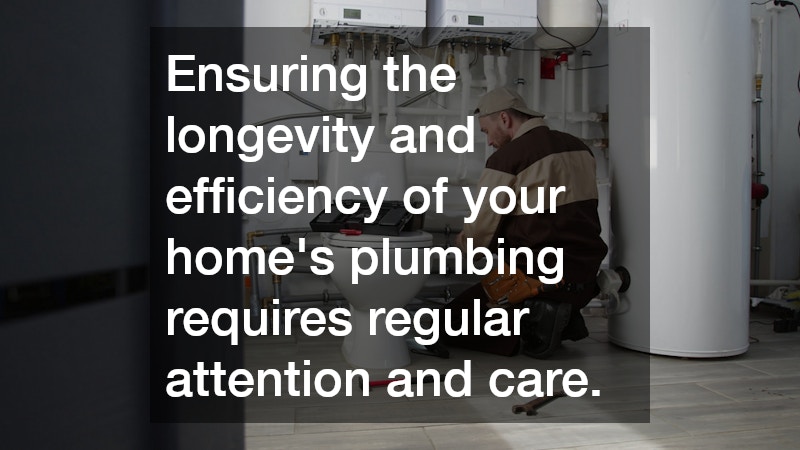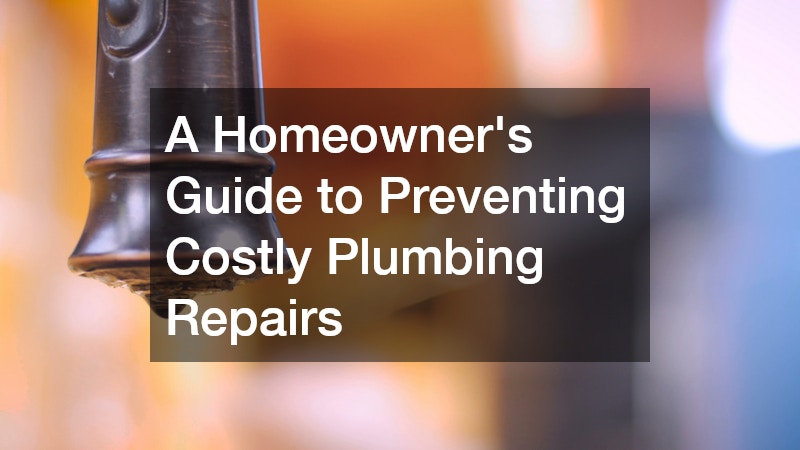Plumbing issues can be a significant headache for homeowners, often leading to costly repairs if not addressed promptly. Understanding how to prevent these problems is essential for maintaining the health of your home’s plumbing system. This guide will explore common questions and provide practical tips to help you avoid expensive plumbing repairs.
How can I prevent clogged drains effectively?
Regular Maintenance and Cleaning
Regular maintenance and cleaning are crucial to maintaining clear drains in your household plumbing system. By routinely flushing your drains with hot water, you can effectively remove grease buildup, soap residue, and other debris.
Simple household solutions, like baking soda and vinegar, can also help maintain a clean and unobstructed flow.
Avoid pouring fats or oils down the drain, as they can solidify and cause clogs over time. Instead, collect grease in a container and dispose of it in the trash. Regular cleaning reduces the risk of slow drains, which can eventually lead to more severe blockages if not addressed.
For bathroom drains, use a mixture of baking soda and vinegar monthly to break down any residue and maintain a free-flowing system. Scheduling periodic professional inspections can catch issues before they become major problems. Additionally, keeping an eye on your drainage speed is a proactive way to ensure your plumbing remains in good condition.
Proper Disposal of Waste
Proper waste disposal is vital in preventing clogged drains, particularly in the kitchen. Never dispose of items like coffee grounds, eggshells, or fibrous vegetables like celery in the sink. These materials do not break down well and can form solid clusters within your pipes.
Use your garbage disposal wisely, always running the water while it’s in operation to clear out any food scraps more effectively. It’s advisable to dispose of large food scraps or non-disposable items in the trash or compost, as these can quickly cause blockages. A little care in what you allow down the drain can significantly prolong your plumbing system’s lifespan.
In the bathroom, make sure to dispose of items like cotton swabs, hair, and sanitary products in the trash bin. By being mindful of what goes down each drain, you can keep your entire plumbing system working efficiently. Preventing these issues before they start will always be more cost-effective than addressing them after a problem arises.
Use of Drain Screens and Filters
Installing drain screens and filters is a straightforward and efficient way of preventing clogs caused by unwanted debris. These tools act as a sieve, catching hair, food particles, and other items that could block your drains. Strainers are particularly useful in bathrooms and kitchens, where blockages most commonly occur.
A simple and recurring investment in high-quality drain screens can extend the life of your plumbing by ensuring only water and smaller soluble particles pass through. These filters can be cleaned easily and regularly to maintain their effectiveness. Their implementation provides a significant return on investment by preventing costly and inconvenient clogs.
Regularly check and clean out your drain screens to ensure that they don’t become a breeding ground for bacteria. A quick rinse with high-pressure water or a soak in a cleaning solution can remove any gunk buildup. Keeping your drains clear with screens and filters fosters a healthier home environment.
What steps can I take to avoid pipe leaks?
Monitoring Water Pressure
Monitoring your home’s water pressure is crucial in avoiding undue stress on pipes and preventing leaks. High water pressure can cause joints to weaken and increase the likelihood of leaks. Install a pressure regulator if your home experiences frequent fluctuations in water pressure.
Regularly check your water pressure using a pressure gauge—ideally, the pressure should be between 40 and 80 psi. If your pressure exceeds or falls below this range, consider consulting with a plumber for potential adjustments or installation of a pressure-reducing valve. Consistent, appropriate pressure levels significantly reduce the risk of leakages.
Insulating Exposed Pipes
Insulating exposed pipes is an essential measure in preventing them from freezing and bursting during colder months. Foam pipe insulation is an affordable solution that can be easily installed around pipes in basements, crawl spaces, and other unheated areas. This insulation helps retain heat in your pipes, ensuring smooth water flow even in frigid temperatures.
In addition to protecting against freezing, insulation also contributes to energy efficiency by reducing heat loss. Preemptively taking these steps can save homeowners thousands of dollars in potential repair costs. Particularly in regions with harsh winters, insulated pipes are an investment in safeguarding your plumbing system.
Preserving the longevity of your plumbing is one side effect of insulation, but it also promotes overall well-being by ensuring that you always have access to water when you need it. Insulate all exterior faucets and perform checks for wear each season to ensure the integrity of your system. Proper insulation can extend the lifespan of your pipes and ensure a steady supply of water year-round.
Regular Inspection for Signs of Wear
Regularly inspecting your pipes for signs of wear and tear is crucial to preventing unexpected leaks and water damage. Look for signs such as corrosion, discoloration, or moisture on the pipes. Spotting these early can allow you to make repairs before extensive damage occurs.
An annual check-up with a professional plumber can identify weaknesses in your plumbing system that may not be visible to the untrained eye. Regular inspections create a record of the condition of your plumbing system, making it easier to detect gradual wear and address it proactively. Documenting these inspections is vital for maintaining a long-term maintenance schedule.
Ensuring the longevity and efficiency of your home’s plumbing requires regular attention and care. By addressing common concerns and implementing preventive measures, you can minimize the risk of costly repairs. Stay proactive in your plumbing maintenance and enjoy a smooth-running system for years to come.



